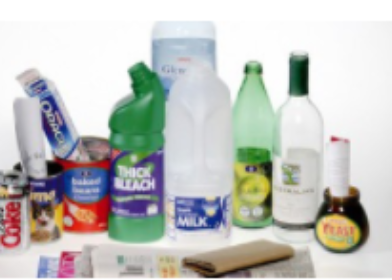In the third of our series about where our blue bin material ends up, we put the spotlight on plastic and its recycling journey.
Ahead of European Week for Waste Reduction which takes place from November 18th to November 26th, we want residents to realise the important difference they are making by choosing to use their blue bin.
Residents across the Causeway Coast and Glens area recycled more than 1118 tonnes of plastic bottles last year.
This accounted for 10.5% of material collected in our blue bins.
It may come as a surprise to many but the majority of plastic bottles and containers in everyday use are made from oil. Most of our drinks bottles are made from polyethylene terephthalate or PET. It is preferred for food packaging because it is hygienic, strong, lightweight and shatterproof making it efficient for both solid and liquid contents.
Our dependence on oil for power generation, transport and plastic manufacture has put immense strain on this resource. It is important to recycle as much plastic as possible in order to reduce energy demands in production from new virgin sources and to protect sensitive areas of our planet.
Plastic collected in our blue bins is sent to a Materials Recovery Facility (MRF) in Newry. From there it could end up in a recycling plant in Europe or China. Bottles are cleaned of dirt and dust then chipped into flakes before being melted and formed into new bottles or containers.
The significant efforts made by residents across the Causeway Coast and Glens to improve our recycling performance can realise important benefits for the environment. Increased recycling means less oil has to be extracted and less energy is needed in the plastics manufacturing process, so climate changing emissions are reduced.
To find out more about what happens when we choose to recycle plastic watch the short video below.
For further information about recycling go to www.causewaycoastandglens.gov.uk/live/bins-and-recycling or ring 028 7776 0305.
